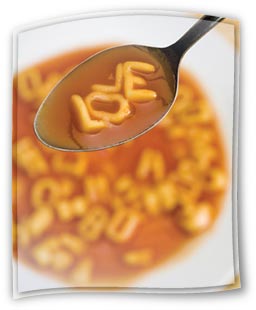
The trouble with the prophet is his alphabet soup.
Prophet Isaiah was certainly not shouting shaloms outside the ministerial party house. He would rather slip away and not see his prophetic colleagues and Temple ministers so unfittingly postured. But how do you escape a drunk who knows you? Worse still: How do you escape a whole crowd of giddy revelers who have long nurtured the same scorn and now experience the same liberation that alcohol has granted to their frontal lobes?
Here they are now, at the crude end of their celebration. The end beyond glad hands, slapped backs, swigged shots, and mounted furniture that proves among besotted bon vivants who is the greatest, who holds his drinks at the dizziest height—a man thing, they say—that, like so much else, is no longer necessarily so.
But by the time Isaiah has happened on the scene, the end has come. We would not know it, nor might we even think it if he had not told us so. But Isaiah does, though it shames him so, though it defiles his fraternal and spiritual sensibilities—this end where no last man stands, because there is vomit everywhere and nothing to do but skid, slip, and splatter about in it (Isa. 28:7, 8).
 Astonishingly enough, except for their intoxication, they want to talk, whether or not he does, dispensing with direct address. Caught in their own strobe lights, perhaps, or more likely inspired to oblivion about their own embarrassment, they will expose his inadequate, Lilliputian ministry. He must think us naive, or nursing babes. So he carries on in his simplistic, repetitive way, “tsav latsav tsav latsav qav laqav qav laqav ze‘er sham ze‘er sham” (verse 10). He feeds us alphabet soup. It is monotonous, boring, tasteless. We are priests. We are prophets. We are postmodern grown-ups. We revel in lifestyles and ideas quite beyond his ken.
Astonishingly enough, except for their intoxication, they want to talk, whether or not he does, dispensing with direct address. Caught in their own strobe lights, perhaps, or more likely inspired to oblivion about their own embarrassment, they will expose his inadequate, Lilliputian ministry. He must think us naive, or nursing babes. So he carries on in his simplistic, repetitive way, “tsav latsav tsav latsav qav laqav qav laqav ze‘er sham ze‘er sham” (verse 10). He feeds us alphabet soup. It is monotonous, boring, tasteless. We are priests. We are prophets. We are postmodern grown-ups. We revel in lifestyles and ideas quite beyond his ken.
Isaiah’s bluntly disarming answer hurls the words back in their faces to agree with them. Yes, he insists, alphabet soup shall be your fare. In place of your endlessly risqué and risky fabrications of X-citement, God offers you rest you reject. God guarantees you Canaan’s menuchah rest sweet with milk and honey beyond the scorch of days and the chill of nights of desert wandering, beyond the struggles for territory and Balak’s threats of blight.
He offers you margea‘ serenity that only the Redeemer who is strong enough can give.1 Instead you bend toward pharmaceutical joys, or happiness by addled brains. So God, in place of empty calories and momentary giddiness will give you more alphabet soup. God knows you still need alphabet soup.
Though your next serving will be rather more unpalatable than the one you reject. Because God knows you still need alphabet soup. It will be strange next time, served to you at foreign tables. Because God knows you still need alphabet soup. For your spiritual immaturity, for your moral sickness, God knows you still need alphabet soup. He will give you what you need.
Isaiah’s bold response may still provoke dismissive dismay among sophisticated alchemists diligently blending their own potions of truth in place of basic food dished out to us by simple revelation. His words still confound the genius that assures us humans of an earned part in the final celebration because we discovered the recipe for ourselves.
Exegetically speaking, many readers still encounter Isaiah’s words as nothing more than meaningless monosyllabic mumbling. But for those meek enough to respect revelation’s monosyllables, and modest enough to feast on God’s alphabet soup, those syllables have powerful, inexhaustible, life-giving, rest-bringing meaning.
While for the rest those same simple words will be their utter undoing: “So the Lord will spell out his message for them again, one line at a time, repeating it over and over, a line at a time, in very simple words. Yet they will stumble over this simple, straightforward message. They will be injured, trapped, and captured.”2
Take your soup, dear child of God. God knows you still need alphabet soup.
1 See the Hifil of rg‘ in Jer. 50:34.
2 Isa. 28:13, NLT. Texts credited to NLT are taken from the Holy Bible, New Living Translation, copyright © 1996. Used by permission of Tyndale House Publishers, Inc., Wheaton, Illinois 60189. All rights reserved.
Lael Caesar is an associate editor of the Adventist Review. This article was published Mary 12, 2011.